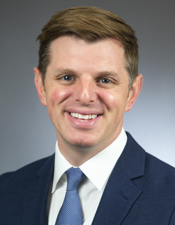Affordable housing — in Twin Cities and Greater MN —would be focus of new grant program
Does the Twin Cities area have the worst housing shortage in America? A September study by the Minnesota Population Center came to that conclusion. But Rep. Michael Howard (DFL-Richfield) says it’s really a statewide problem.
“In Greater Minnesota, we’re seeing a huge need for workforce housing,” he told the House Taxes Committee Tuesday. “Over 500,000 Minnesotans are cost-burdened for housing, meaning that they pay more than 30% of their income for housing. We need to recognize that the status quo is not meeting this challenge.”
So Howard is sponsoring HF3982, which would create a grant program to distribute money to cities and counties for them to develop and rehabilitate affordable housing. It would annually appropriate $100 million from the General Fund, with $70 million going to counties, $20 million to cities, and $10 million for smaller projects that don’t fit into the formula.
“This would create a new, direct resource to our cities and counties,” Howard said. “They don’t need us to tell them how to spend the resources, but they do need the resources.”
The committee laid the bill over, as amended, for possible inclusion in an omnibus tax bill. Its companion, SF3779, sponsored by Sen. Kari Dziedzic (DFL-Mpls), awaits action by the Senate Taxes Committee.
Administered by the Minnesota Housing Finance Agency, the program would be targeted at developing and preserving affordable housing, meting out state aid to counties and cities with populations of at least 10,000. Local governments not eligible for the state aid program would be eligible for grants of at least $25,000 to be spent on qualifying projects.
Grants would be prioritized to local governments that have a higher proportion of cost-burdened households.
The Department of Revenue estimates the program would reduce General Fund revenue by $96.7 million in fiscal year 2024 and again in fiscal year 2025.
“We particularly need housing for the jobs that are paying lower wages, but are essential,” said Anne Mavity, executive director of the Minnesota Housing Partnership. “In Minnesota, 25% of households pay more than they can afford for housing.”
“In my part of Minnesota, what we need is market-rate workforce housing,” said Roseau County Commissioner Jack Swanson. “We have Marvin Windows and Doors and Polaris Industries, and our LifeCare Medical Center. There are hundreds of jobs available at all three, but the greatest barrier we face is a lack of affordable housing.
“Marvin will put new workers up in a hotel for three months until they can find housing. Too often, they move back to where they came from. Private developers do not meet the demand. They can charge a lot more in the Twin Cities than in Roseau, so they’re going to go where they can make a quicker return on investment. … But this could provide some gap funding that would encourage private developers.”
“I know we need to do things,” said Rep. Jerry Hertaus (R-Greenfield). “But we really ought to comprehensively look at just getting the heck out of the way, and let the market fix itself.”
But Rep. Cheryl Youakim (DFL-Hopkins) disagreed, pointing to testimony from St. Peter City Administrator Todd Prafke that his city used 13 different funders for one affordable housing development.
“Sometimes the market doesn’t work and we have to intervene,” Youakim said. “We’re getting to a crisis point in some parts of the state where 56% of residents are cost-burdened.”
“This creates a tool that we don’t have currently,” said Olmsted County Commissioner Sheila Kiscaden. “This will help plug gaps in funding. I think this could be a game changer for the cities and counties.”
Related Articles
Search Session Daily
Advanced Search OptionsPriority Dailies
Speaker Emerita Melissa Hortman, husband killed in attack
By HPIS Staff House Speaker Emerita Melissa Hortman (DFL-Brooklyn Park) and her husband, Mark, were fatally shot in their home early Saturday morning.
Gov. Tim Walz announced the news dur...
House Speaker Emerita Melissa Hortman (DFL-Brooklyn Park) and her husband, Mark, were fatally shot in their home early Saturday morning.
Gov. Tim Walz announced the news dur...
Lawmakers deliver budget bills to governor's desk in one-day special session
By Mike Cook About that talk of needing all 21 hours left in a legislative day to complete a special session?
House members were more than up to the challenge Monday. Beginning at 10 a.m...
About that talk of needing all 21 hours left in a legislative day to complete a special session?
House members were more than up to the challenge Monday. Beginning at 10 a.m...
